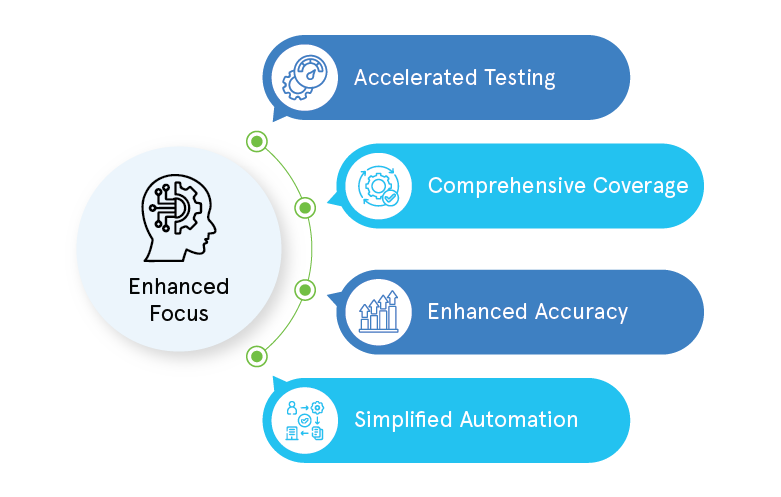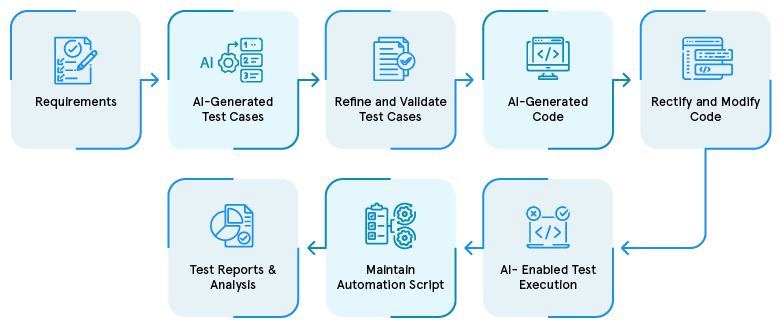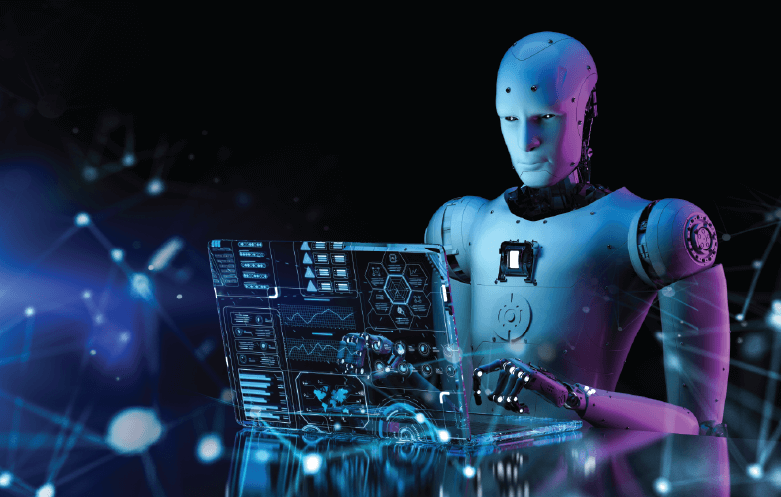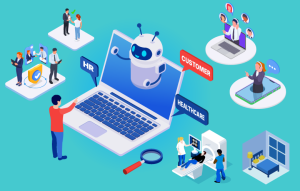Getting products and services to market faster is critical for businesses looking to stay ahead of the competition. However, ensuring the quality and reliability of these applications is a complex challenge. Traditional testing methods are often time-consuming and resource-intensive. This is where artificial intelligence (AI) is revolutionizing the testing process, making it more efficient and effective than ever before.
By integrating AI in testing processes, organizations can increase test coverage, improve the accuracy of testing activities, and accelerate the overall software development life cycle. This leads to more efficient and effective software testing, ultimately enhancing the quality of software products.
AI in software testing
AI testing is the process of evaluating the functionality, performance, and reliability of a system with the help of AI. It still involves the same core techniques used in traditional software testing, but these techniques have been drastically improved by AI.
AI tools can assist testers in the advanced human reasoning tasks. It will improve the scalability of these tools, so testers can gradually move on to more strategic tasks. These aren’t just “testing tools” anymore; they’re AI-powered partners that elevate the entire game.
What does AI mean for QA testers?
Using AI is like having a smart helper for QA testers. Just as automation helps testers avoid doing the same tasks over and over, AI takes it a step further by learning from past problems. This means it can find solutions to new problems based on what it learned before.
QA testers can continue their usual work but also learn about AI tools. These tools can make their work easier and improve the efficiency of the whole QA team. So, if QA testers use AI tools well, the quality of a product can be greatly improved in a shorter time.
How AI helps testing process
AI software testing can improve accuracy and speed. By detecting bugs quicker and faster, AI can give testers the time and mental energy to create better testing methods, write better test scripts, and devise ways to craft the best possible user experience.
AI can optimize software testing in several ways, including,
1. Enhanced accuracy: AI minimizes human error, leading to highly accurate test results, fostering greater confidence in software quality. The chances of human errors are much lower in AI testing, leading to high test accuracy.
2. Enhanced focus: AI frees up QA teams to perform critical tasks like exploratory testing and strategic planning. It allows the QA team to focus on other critical testing tasks.
3. Simplified automation: AI allows even complex workflows to be automated through natural language commands, eliminating tedious scripting efforts.
4. Comprehensive coverage: AI helps test every possible test scenario, thus helping teams achieve high test coverage in less time. This is not possible in manual testing.

The integration of AI tools into testing handles the repetitive tasks, freeing up human testers to focus on more strategic and creative aspects of testing. Testers can then leverage AI for every stage:
- Automated test case creation: AI generates extensive test cases, including complex scenarios, at lightning speed.
- Intelligent test data generation: AI creates realistic and diverse test data, ensuring comprehensive coverage and minimizing the risk of missing edge cases.
- Test case prioritization: AI analyzes code changes and historical data to prioritize crucial tests, ensuring thorough coverage of critical areas.
- Test automation: AI automates script generation and self-heals test scripts, adapting to application changes and minimizing maintenance efforts.
- Regression suite automation: AI intelligently conducts regression testing based on code changes, significantly reducing turnaround time.
- Defect prediction: AI analyzes various data points to predict potential defect-prone areas, enabling proactive testing and mitigation.
- Performance testing: AI simulates user behavior and analyzes system performance under diverse conditions, pinpointing bottlenecks and performance issues.
- Security testing: AI-powered tools identify vulnerabilities and security threats by analyzing code, dependencies, and runtime behavior.
- Natural language processing (NLP) for testing documentation: AI-powered NLP simplifies test case creation and validation by analyzing and understanding requirements, user stories, and other documentation.
- Visual testing: AI compares screenshots to identify discrepancies between expected and actual application states, enhancing graphical user interface testing.
- Predictive analysis: AI analyzes past data to predict potential issues and recommend testing strategies tailored to project specifics and historical performance.
- Continuous testing and integration: AI automates the continuous testing process within the CI/CD pipeline, ensuring seamless test execution throughout the development lifecycle.
- Chatbots for user interface testing: AI-powered chatbots simulate user interactions, guaranteeing a flawless user interface experience.
- Behavior-driven development (BDD): AI facilitates the creation and execution of tests based on natural language specifications, fostering collaboration between diverse stakeholders.
- Auto healing locators: AI based self-healing capabilities analyzes the current DOM and fixed the failed locators automatically which reduces flaky tests.

Conclusion
Artificial Intelligence has become a game-changer in the field of software testing. By automating repetitive tasks, enhancing test case generation, and providing intelligent insights, AI significantly improves the efficiency and effectiveness of the testing process. As technology continues to advance, the integration of AI in software testing will play a crucial role in delivering high-quality applications to meet the demands of today’s dynamic digital landscape.









